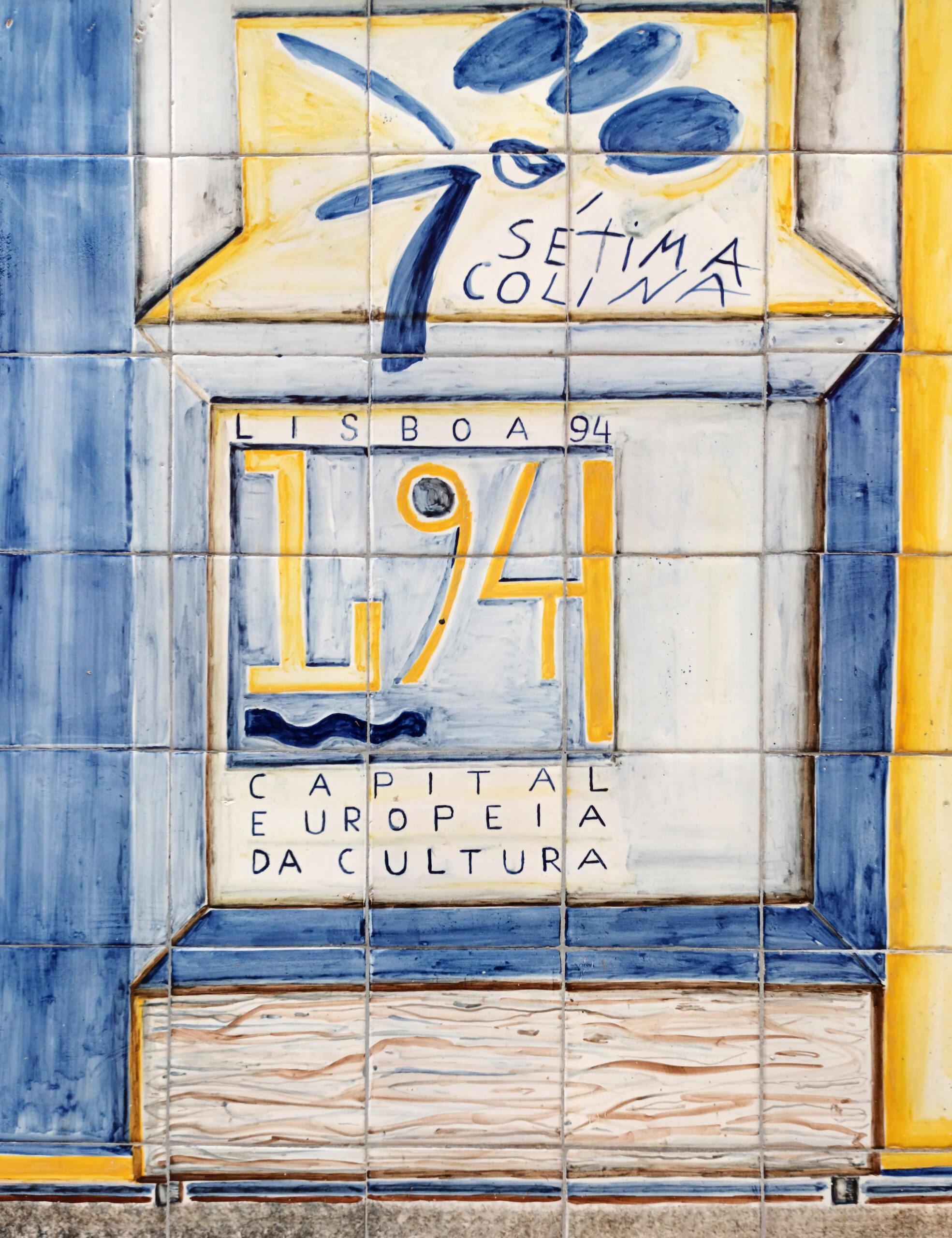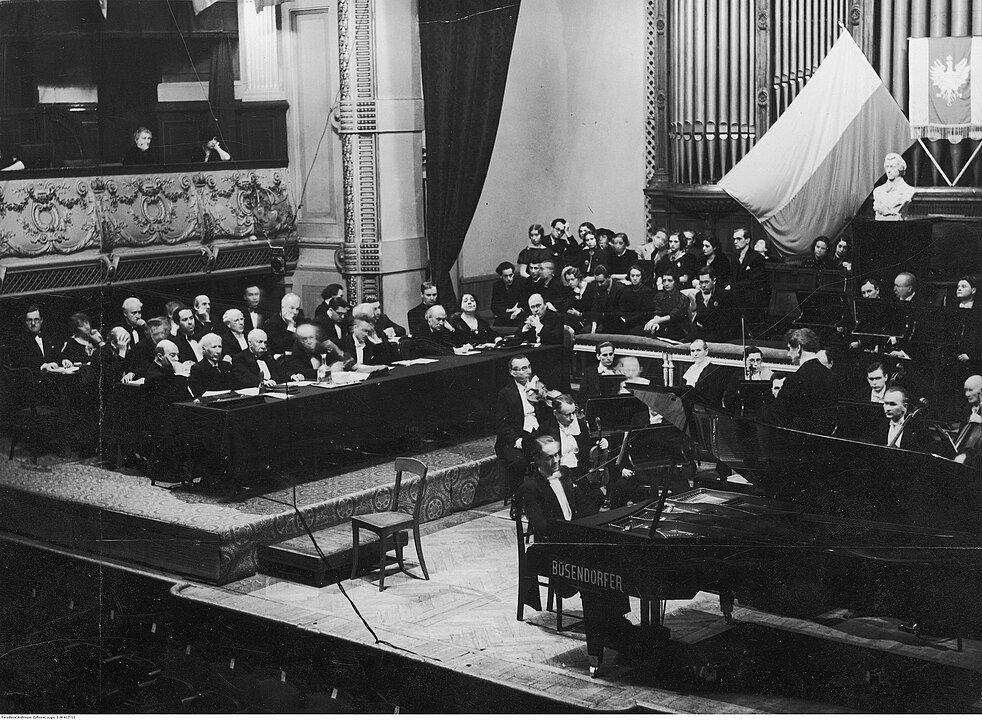Authors of “Artists and Markets in Music: The Political Economy of Music During the Covid Era and Beyond” (Routledge 2024) conduct a comprehensive study on music production factors, utilizing a unique “snowball” sampling method. Surveying musicians from January to August 2022, their research reveals the significance of serendipity, authenticity, and stimulants in music production. The study explores the entrepreneurial spirit of artists during the pandemic, income disparities, the impact of education, and more, shedding light on the complex dynamics of the music industry.
In our book Artists and Markets in Music: The Political Economy of Music During the Covid Era and Beyond (Routledge 2024) we build upon this idea by articulating how we might conceive Samuel Cameron’s proposed factors of production and then we survey musicians to test this proposal. The inputs to music production are capital, labor, serendipity, authenticity and drugs (Q = f (K, L, S, A, D).
Capital includes the technology present at a given time including the “natural resources” of artist or collective talent. The production function is also limited by the recording or performance technology at a given time and place. For example under the digital economy it is best to have a hook in the first 30 seconds of a song. Labor is measured by “effort units,” not time as in orthodox economic measurement.
Serendipity can be applicable to both supply and demand. Artists create their own demand through entrepreneurship. Some entrepreneurial success maybe be “blind luck” through the market discovery process. There may be serendipity in the production process as well such as mistakes which turn productive. So serendipity might also represent tacit knowledge and action towards risk-taking and entrepreneurial reward. The long tail of the digital economy has also reduced search costs for discovery of new music (increased serendipity) for ‘consumers’.
Authenticity is also tacit knowledge and practice. It is a fallacy to believe that originality only comes from the “noble savage” outside the “stuffy confines of formal linear music training.” The truth may lie somewhere in-between and is realized through the specialization of labor. People may travel to seek authenticity, for example to New Orleans for jazz and funk music or Bakersfield for country songs or Jamaica for a particular inspiration as did the Clash. Ray Davies of the Kinks wrote songs because he couldn’t play covers.
Drugs can either be a form of capital as an input to the creative process or they may be an occupational hazard. The truth is again probably somewhere in between. The choice of stimulants (or none at all) can also be a means to connect audience and artist.
Our survey to test the SAD production function hypotheses uses a unique “snowball” sampling methodology as contrasted with the industrial organizational economics approach. We distributed a questionnaire using Survey Monkey from January through August 2022 during the covid era and the survey was circulated decentrally through word of mouth, without remuneration and without the use of social media by the authors.
Introductory Page on Survey Monkey
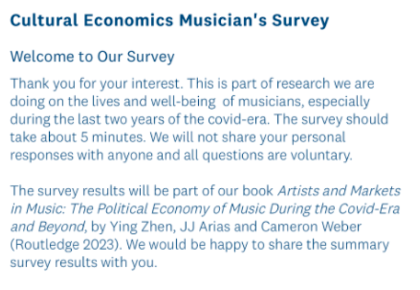
The first question asks for how long have you considered yourself a musician. If the answer is zero years then these responses are not included. There are questions and responses which are necessarily subjectively ordinal. For example we ask how important are each of the SAD inputs to music production, without defining what success is.
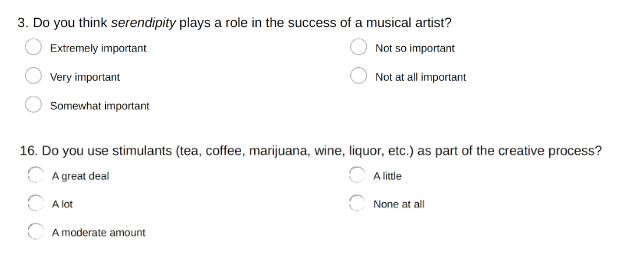
We are also interested in the artist as entrepreneur and well-being during the covid era.
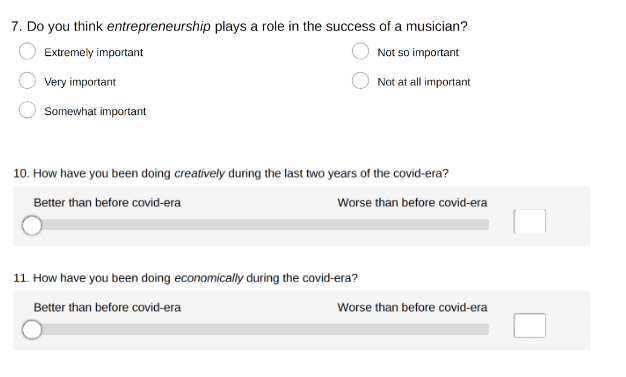
Our results, which face the same limitations on generalizations as all survey processes, offer support for the importance of serendipity and authenticity and the use of stimulants in the SAD production function for music. We find evidence for the entrepreneurial nature of artists (musicians), using the covid-era as a period of necessary pivots in cultural production. We confirm previous findings that artists (musicians) earn less income than the general populace and we find that artists (musicians) who value education more tend to earn less than their cohorts (Throsby 1994, Alper and Wassall 2006).
Other findings include that labor union members tend to value entrepreneurship less and are worse-off creatively and economically than their cohorts during the covid era. Those who value education more are more likely to obtain covid era government arts ‘relief’ grants; this helps confirm education as social capital. Those who value serendipity fair worse creatively relative to their cohorts due to the diminished spontaneous order created by the lock-downs. Finally, those who value the SAD inputs more tended to agree more with the statement “Good art can come from bad times”.
References
Neil O. Alper and Gregory H. Wassall (2006). “Artists’ Careers and Their Labor Markets.” In Handbook of the Economics of Art and Culture, edited by Victor A. Ginsburgh and David Throsby. Oxford: North-Holland: 813-864.
Samuel Cameron (2015). Music in the Marketplace. A Social Economics Approach. London and NY: Routledge.
Samuel Cameron (2016). “Past, Present and Future: Music Economics at the Crossroads,” Journal of Cultural Economics 40(1):1-12.
David C. Throsby (1994). “The Production and Consumption of the Arts: A View of Cultural Economics.” Journal of Economic Literature 32 (1): 1-29.
About the article
Cameron M. Weber, Ying Zhen and JJ Arias (2024). Artists and Markets in Music: The Political Economy of Music During the Covid Era and Beyond. London and NY: Routledge.
About the author
Cameron Weber is an Independent Scholar living in Brooklyn, New York.




